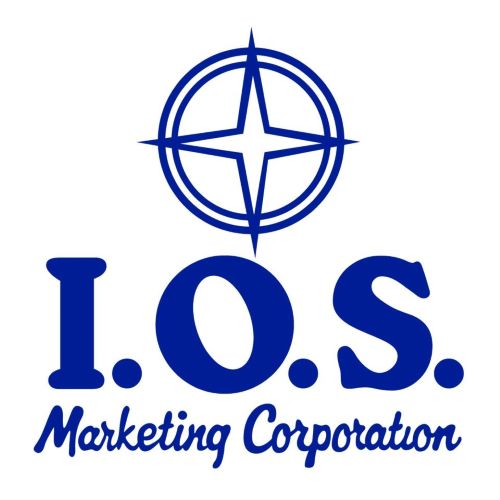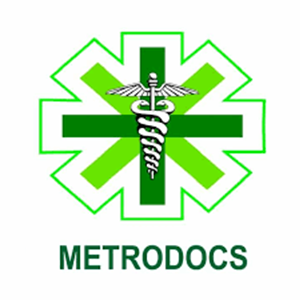Pharmacy assistant
Pharmacy assistant
JOB DESCRIPTION
JOB QUALIFICATION
Must be a graduate of BS Pharmacy or BS Nursing
18 years old above
Male/Female
With or without experience
Fresh are graduates are welcome to apply
Willing to be trained
Hard working and Self Driven
Amenable to work in Cainta Rizal
OTHER JOB REQUIREMENTS
WORK LOCATION
COMPANY PREVIEW
Dress Code
Language
Telephone No.
Mobile No.
Company Size
COMPANY OVERVIEW
COMPANY PROFILE
The story of MRDHSC cannot be told without the inspiration provided by the Medical Mission Group Hospitals and Health Services Cooperative which had its beginnings in Davao City in the early 90's. spearheaded by Dr. Jose "Ting" Tiongco, a neurosurgeon by profession. The Medical Mission Group Hospitals and Health Services Cooperative of the Philippines Davao ( MMGHHSCP ) was founded by a group of doctors in Davao City as response to dire need among the underserved in the community. Decent, honest - to - goodness health services devoid of the trappings of the commerce was the call made by the community.
An impending strike among hospital workers due to unpaid wages and detoriating conditions, the empoyees of a big government hospital convinced Dr. Tiongco that the idea of health professionals banding together to establish an organization whose aim is to provide theseservices was ripe.
The cooperative concept has been around for over a hundred years. It is not a communist idea as perceived by many people; In fact, it is the model for democratic society. Roben Owen, a Welsh utopian Socialist who espoused the philosophy of self-help, inspired the Rochdale Pioneers of 1844 in New England. Since then cooperative credit system. Israels kibbutz is one very good example of a farm cooperative. In the Philippines in 1896, Jose Rizal , the national hero, formed a farmers cooperative while exile in Dapitan.
Cooperatives have shown that private initiative and resources can indeed spur economic activity and empower the members with their collective capital and resources. This is a very potent alternative to the meager government funds available for credit. Thousands of cooperatives exist in the country today. Among which are credit unions, multipurpose cooperatives by company employees, market vendors, cooperatives and even tricycle drivers cooperatives, however, have not been sucessful because of the nature of its very existence. They were created by decrees and governmnet initiatives. Examples are the government funded FACOMAS in the fifities and sixties and the Samahang Nayons and KADIWA of the seventies and early eighties. Their existence expired with the exit of the administrattions that created them. The new government that took over could not effectively sustain them because the bonds of membershio to these oraganizations were dictated upon them.
Republic Act 6938, otherwise called the Cooperative Code of the Philippines , gave great emphasis to private initiative and resources, self, help, democratic control and autonomy, and the principle of subsidiary which allows government assistance. where necessary. Sadly, until unit just fairly recently , there have been a cooperative of professionals, much lesss doctors, organized until the founding of the Medical Mission Group Hospital and Health Services Cooperative in the 90's .
Although making progress by leaps and bounds and establishing chapters in 40's other locations all over the Philippines, MMGHHSCP tried but failed several times to organize one in Metro Manila. Anbd because of this, they considered it their long link - until February 1997.
While doing his first major case at Quezon City Medical Center, Tr. Tito Garcia, fresh from residency training in General Surgery at Rizal Medical Center, sought the help of his colleagues and seniors in doing an Abdomino-perimneal resection on a 55-year old woman diagnosed to have Stage II Colerectal CA. Although trained in the at of surgery he had no "home-base"to do his craft in. As was the case with most goverment-trained surgeons, his umbilical cord have been suddenly cut-off from his mother training institution after graduation. Most are not given right to practice i the very hospital were they trained in. Having no resources to start a practice in the big medical centers like The Medical City nor connections to insinuate himself in hospitals like St. Lukes Medical Center, the privately-owned QCMC, accepted Dr. Garcia's credentials with endorsements from his senior surgeon - mentors.
At the conclusion of the Miles operation the group went out for a late dinner and the usual two-fo-the road. This was where the idea of forming a gropued was hatched. One doctor in the group mentioned the Davao MMGHHSCP and its sucess story.
Dr. Garcia made contract with Dr. Ting Tiongco through e-mail who in turn promptly responded. Arrangements for a visit by Dr. Tiongco were made and invitations and invitations to doctors were sent. After several meetings, the Medical Mission Group Metro Manila East Hospitals and Health Services Cooperative were organized. A year later, its flagship project, The Mission Hospital, was founded on December 8, 1998. Thereafter, Manila having been taken in to the organization, the different chapters decided to federate and the Medical Mission Group Hospitals and Health Services Cooperatives Federation of the Philippines was formally registered with the CDA as the first federation of Health Services Cooperatives in the Philippines. Dr. garcia was elected to the Board f the Federation during its first annual general assembly held in Albay in 1999, and was appointed Chairman of the Chapter Development Comittee during the First National Directorate Meeting. The Federation holds its regular Directorate meeting every quarter with a chapter hosting each time.
During all this time that Manila was organizing, the municipal health board of Cainta came to know about the organization and decided to make a trip to Davao and Tagbilaran City in Bohol where the local chapters were operating tertiary and secondary hospitals. They were interested particularly in observing the operations of the City Governmaent hospital and converted it into a cooperative hospital. In October 1998, Mayor Nick Felix requested Dr. Garcia for an exploratory meeting to discuss the possibility of converting the Felix-Tacano building within the municipal government compound, which was currently being used as the municipality's main health center, into a fully operational hospital under the management or in cooperation with the local doctors. Dr. Garcia obliged and subsequent meeting were held with the mayor. Dra. Abellanosa and some other municipal health officers. An initial economic survey was conducted and after its completion, invitations were sent to the prominent medical practioners of Cainta and its neighboring towns like Angono, Taytay, Marikina and Binangonan. The first meeting, sponsored by the municipality , was held at the TESDA center building and was attended by around 30 doctors among whom were Dr. Francisco San Diego, Dr. angelito Duran, Dr. Artemio Dumo and others, al prominent private practitioners in Cainta. In the meeting, the attendees lamented the fact that Cainta is one of only a handful of big Rizal municipalities that did not have any hospital facility to cater its constituents considering that its yearly budget allocates a big portion to health plus the fact that a building built through the help of its famous benefactor, Mr. Tacano, was especially dedicated to precisely establishing one. It was proposed in that meeting that a cooperative of Cainta doctors will study the posibility of establishing cooperative to take over the operations of the Felix Tacano Hospital for the benefit of the people of Cainta through a special lease arrangement or partnership with the local government. Dr. Garcia sought the help of Dr. Francisco San Diego, who was president- elect of the Taytay-Angono-Cainta Medical Society at that time, to organize a formal meeting of medical practioners for the purpose of deciding whether or not to push through the plan of setting up a cooperative. After several organizational meetings attended by 16 core members. The group was finally organized and it was decided that for a partnership with the municpal government to work, politics should be set aside and the task at hand is to provide affordable, accesible, attainable and adequate health services for the people of Cainta. The goal however did not materialize because of the lack of political will on the side of certain members of the Sanggunian.
The Metro Rizal Doctors Health Services Cooperative was duly registered with the Coperative Authority of the Philippins in April 15, 2001. Although the gropu was meeting regularly , once or twice a month, to map out plans for the Cooperative hospital in Felix Tacano building, the Municipal Health Board of Cainta did not show the same zeal. It was decided during one of the board meetings that he group should serve notice to the Municipality that it was getting out of the previous agreement if they failed to comply with the numerous requests for a formal meeting and a Sangunian Bayan Resolution adopting in principle the agreement with the local officials to operate the Felix Tacano Hospital.
After several uphill challenges and the determination and commitment of the group, Metro Rizal Doctors Hospital commenced operation on September 08, 2003. In the later years the building was constructed with an extension in annex building and the third floor was also constructed thereafter. At present the seven story building was the new hospital and was inaugurated last June 12, 2019.
MISSION
To provide QUALITY HEALTH CARE for all.
VISION
To be the leader in the hospital and Health Services business in the eastern section of the metropolis through our well trained and acknowledgeable health services staff and cooperative members.
To be a training institution where expertise of Physician nurses and allied workers skills will be honed to their maximum potential.
COOPERATIVE VALUES
We will aspire to achieve excellence in providing professional services by promoting superior performance through continuous innovation and honoring our strengths.
We will practice honesty in our dealings with both clients and cooperators.
We will at all times be sensitive to the needs of patients their family, personnel and cooperators.
Industry a basic trait to ensures progress. Thru continuous improvements of service and process.
Loyalty to the ideals under which the MRDHSC is dounded.
Teamwork to have all employees work for the common goals of the cooperative. All stakeholders ( employees, cooperators and clients) are encouraged to contribute ideas and efforts to the continous improvements of the hospital services and processes.

